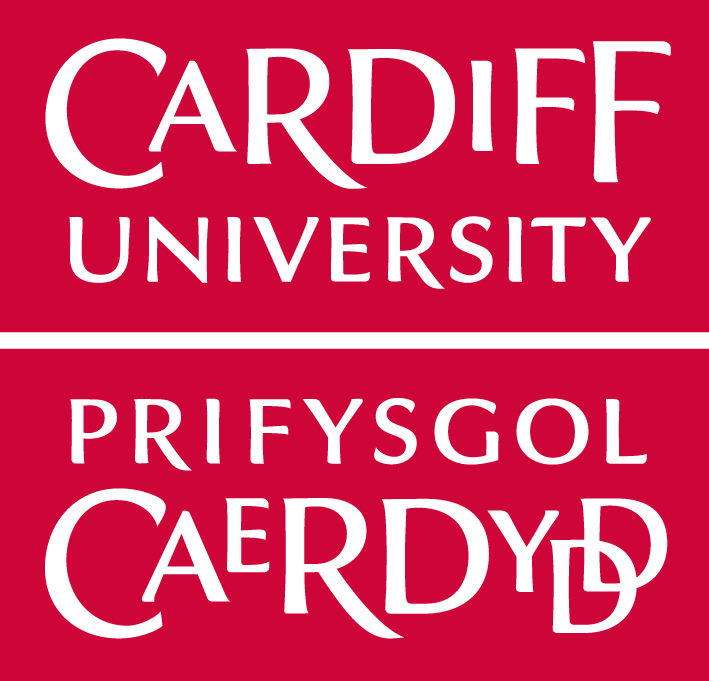Invited Speakers
 Paul Dunne graduated from the University of
Edinburgh in 1981, subsequently completing doctoral research at
the University of Warwick under Mike Paterson's supervision
(1981-1984). He has worked at the University of Liverpool since
August 1985 becoming a full Professor in 2010 (and awarded the
degree of DSc from the University of Edinburgh for a collected
series of papers on complexity in argumentation that same year).
His early interests were in the field of computational
complexity theory with specific focus on Boolean function
complexity. He has been working on algorithmic and computational
complexity aspects of argumentation within Dung's model and its
variants for over two decades. He was active in establishing
COMMA as a regular event, being Program Chair for the inaugural
COMMA at Liverpool in 2006 and its first Steering Committee
President, serving in this role from 2006 until end 2012.
Together with Trevor Bench-Capon he oversaw the production of
the influential Special Issue of AI Journal dedicated to
Computational Argument which appeared in 2007. He has published
extensively in all the leading AI journals, acting as an
Associate Editor of AIJ (2015-2021). He is the author of three
textbooks, the most recent of which appeared in 2019.
Paul Dunne graduated from the University of
Edinburgh in 1981, subsequently completing doctoral research at
the University of Warwick under Mike Paterson's supervision
(1981-1984). He has worked at the University of Liverpool since
August 1985 becoming a full Professor in 2010 (and awarded the
degree of DSc from the University of Edinburgh for a collected
series of papers on complexity in argumentation that same year).
His early interests were in the field of computational
complexity theory with specific focus on Boolean function
complexity. He has been working on algorithmic and computational
complexity aspects of argumentation within Dung's model and its
variants for over two decades. He was active in establishing
COMMA as a regular event, being Program Chair for the inaugural
COMMA at Liverpool in 2006 and its first Steering Committee
President, serving in this role from 2006 until end 2012.
Together with Trevor Bench-Capon he oversaw the production of
the influential Special Issue of AI Journal dedicated to
Computational Argument which appeared in 2007. He has published
extensively in all the leading AI journals, acting as an
Associate Editor of AIJ (2015-2021). He is the author of three
textbooks, the most recent of which appeared in 2019.
Well,
to be honest, I wouldn’t start from here at all
(A personal view of Complexity in Argumentation after 20 Years)
Computational complexity theory and the related area of efficient algorithms have formed significant subfields of Abstract Argumentation going back over 20 years. There have been major contributions and an increased understanding of the computational issues that influence and beset effective implementation of argument methods. My aim, in this article, is to attempt to take stock of the standing of work in complexity theory as it presently is within the field of Computational Argument, as well as offering some personal views on its future direction.
The speaker has kindly shared a pre-recorded video of their talk, which can be found here.
 Iryna Gurevych (PhD 2003, U. Duisburg-Essen,
Germany) is professor of Computer Science and director of the
Ubiquitous Knowledge Processing (UKP) Lab at the Technical
University (TU) of Darmstadt in Germany. Her main research
interests are in machine learning for large-scale language
understanding and text semantics. Iryna’s work has received
numerous awards. Examples are the ACL fellow award 2020, the
ever-first Hessian LOEWE Distinguished Chair award (2,5 mil.
Euro) in 2021 and the ERC Advanced Grant 2022. Iryna is
co-director of the NLP program within ELLIS, a European network
of excellence in machine learning. She is currently the
vice-president of the Association of Computational Linguistics.
Iryna Gurevych (PhD 2003, U. Duisburg-Essen,
Germany) is professor of Computer Science and director of the
Ubiquitous Knowledge Processing (UKP) Lab at the Technical
University (TU) of Darmstadt in Germany. Her main research
interests are in machine learning for large-scale language
understanding and text semantics. Iryna’s work has received
numerous awards. Examples are the ACL fellow award 2020, the
ever-first Hessian LOEWE Distinguished Chair award (2,5 mil.
Euro) in 2021 and the ERC Advanced Grant 2022. Iryna is
co-director of the NLP program within ELLIS, a European network
of excellence in machine learning. She is currently the
vice-president of the Association of Computational Linguistics.
Detect – Debunk – Communicate: Combating Misinformation with More Realistic NLP
Dealing with misinformation is a grand challenge of the information society directed at equipping the computer users with effective tools for identifying and debunking misinformation. Current Natural Language Processing (NLP) including its fact-checking research fails to meet the expectations of real-life scenarios. In this talk, we show why the past work on fact-checking has not yet led to truly useful tools for managing misinformation, and discuss our ongoing work on more realistic solutions. NLP systems are expensive in terms of financial cost, computation, and manpower needed to create data for the learning process. With that in mind, we are pursuing research on detection of emerging misinformation topics to focus human attention on the most harmful, novel examples. We further compare the capabilities of automatic, NLP-based approaches to what human fact checkers actually do, uncovering critical research directions for the future. To edify false beliefs, we are collaborating with cognitive scientists and psychologists to automatically detect and respond to attitudes of vaccine hesitancy, encouraging anti-vaxxers to change their minds with effective communication strategies.
 Antonis C. Kakas is a Professor at the Department
of Computer Science of the University of Cyprus. He obtained his
Ph.D. in Theoretical Physics from Imperial College London in
1984. His interest in Computing and AI started in 1989 under the
group of Professor Kowalski. Since then his research has
concentrated on computational logic in AI with particular
interest in argumentation, abduction and induction and their
application to machine learning and cognitive systems.
Currently, he is working on the development of a new framework
of Cognitive Programming that aims to offer an environment for
developing Human-centric AI systems that can be naturally used
by developers and human users at large. He is the National
Contact Point for Cyprus in the flagship EU project on AI,
AI4EU. He has recently co-founded a start-up company in Paris,
called Argument Theory, which offers solutions to real-life
application decision taking problems based on argumentation
technology.
Antonis C. Kakas is a Professor at the Department
of Computer Science of the University of Cyprus. He obtained his
Ph.D. in Theoretical Physics from Imperial College London in
1984. His interest in Computing and AI started in 1989 under the
group of Professor Kowalski. Since then his research has
concentrated on computational logic in AI with particular
interest in argumentation, abduction and induction and their
application to machine learning and cognitive systems.
Currently, he is working on the development of a new framework
of Cognitive Programming that aims to offer an environment for
developing Human-centric AI systems that can be naturally used
by developers and human users at large. He is the National
Contact Point for Cyprus in the flagship EU project on AI,
AI4EU. He has recently co-founded a start-up company in Paris,
called Argument Theory, which offers solutions to real-life
application decision taking problems based on argumentation
technology.
Argumentation: from Theory to Practice and Back
This talk will present ideas on how we can bring argumentation, as a cognitively explainable form of computation, into real-life AI applications. It will show case examples of argumentation-based systems from a variety of different application domains, such as medical decision support, personal assistants and data access risk management. These systems are built under a general and flexible software methodology that facilitates their development directly from the high-level application domain knowledge and operate under the Gorgias and Gorgias Cloud argumentation technology. The talk will also present work that aims to understand the nature of machine-human interaction when systems argue based on Cognitive Argumentation, a framework of argumentation that builds on the synthesis into computational argumentation of work from Cognitive Psychology on human reasoning. Using the COGNICA system we can set up large scale experiments to empirically study the behavior of human reasoners under the interaction with systems that provide cognitive explanations for their results. The talk will close with a discussion of the possible role of argumentation as a logical foundation of (human-centric) AI based on the experience from the aforementioned real-life application and study of argumentation.
We are thankful to EurAI for sponsoring the talk by Antonis Kakas.
Best Student Paper Award
Our congratulations go to Michael Bernreiter for winning the Best Student Paper Award for his paper with Wolfgang Dvořák and Stefan Woltran titled "Abstract Argumentation with Conditional Preferences"!
Program
All presentations will include time for discussion. The presentation time will be 25 minutes (20 minutes for the talk and 5 minutes for discussion).
The timezone for the following schedule is UTC/GMT+1 hours.
Wednesday 14th of September
| 9:00-9:30 | Conference Welcome | ||
| 09:30-10:30 | Antonis Kakas | Invited Talk: Argumentation: from Theory to Practice and Back. Chair: Francesca Toni | |
| 10:30-11:00 | Coffee Break | ||
| 11:00-12:45 | Session 1: Abstract Argumentation and Beyond. Chair: Sylwia Polberg | ||
| Wolfgang Dvořák, Tjitze Rienstra, Stefan Woltran and Leendert van der Torre | Non-Admissibility in Abstract Argumentation | ||
| Michael Bernreiter, Wolfgang Dvořák and Stefan Woltran | Abstract Argumentation with Conditional Preferences | ||
| Pietro Baroni, Federico Cerutti and Massimiliano Giacomin | A generalized notion of consistency with applications to formal argumentation | ||
| Daphne Odekerken, Annemarie Borg and Floris Bex | Stability and Relevance in Incomplete Argumentation Frameworks | ||
| 12:45-14:00 | Lunch Break | ||
| 14:00-15:45 | Session 2: Machine Learning and Explainability. Chair: Nico Potyka | ||
| Ofer Arieli, Annemarie Borg, Matthis Hesse and Christian Straßer | Explainable Logic-Based Argumentation | ||
| Timotheus Kampik and Kristijonas Čyras | Explaining Change in Quantitative Bipolar Argumentation | ||
| Isabelle Kuhlmann, Thorsten Wujek and Matthias Thimm | On the Impact of Data Selection when Applying Machine Learning in Abstract Argumentation | ||
| Nguyen Duy Hung, Van Nam Huynh, Thanaruk Theeramunkong and Nhu Quy Tho | Composite argumentation systems with ML components | ||
| 15:45-16:10 | Coffee Break | ||
| 16:10-17:00 | Session 3: Relating Argumentation Formalisms. Chair: Kazuko Takahashi | ||
| Markus Ulbricht and Johannes P. Wallner | Strongly Accepting Subframeworks: Connecting Abstract and Structured Argumentation | ||
| Matthias König, Anna Rapberger and Markus Ulbricht | Just a Matter of Perspective -- Intertranslating Expressive Argumentation Formalisms | ||
| 17:00-18:30 | Demo Session 1 | ||
| Stefano Bistarelli, Alessio Mancinelli, Francesco Santini and Carlo Taticchi | An Argumentative Explanation of Machine Learning Outcomes | ||
| Annemarie Borg and Daphne Odekerken | PyArg: solving and explaining argumentation in Python | ||
| Federico Castagna, Simon Parsons, Isabel Sassoon and Elizabeth Sklar | Providing Explanations Via the EQR Argument Scheme | ||
| Stefan Ellmauthaler, Sarah Alice Gaggl, Dominik Rusovac and Johannes P. Wallner | ADF-BDD: An ADF Solver Based on Binary Decision Diagrams | ||
| Nikolai Käfer | CPrAA – A Checker for Probabilistic Abstract Argumentation | ||
| John Lawrence, Jacky Visser and Chris Reed | Polemicist: A Dialogical Interface for Exploring Complex Debates | ||
| Nikolaos Spanoudakis, Georgios Gligoris, Antonis Kakas and Adamos Koumi | Gorgias Cloud: On-line Explainable Argumentation | ||
| Jonathan Spieler, Nico Potyka and Steffen Staab | Interpretable Machine Learning with Gradual Argumentation Frameworks | ||
| Dimitra Zografistou, Jacky Visser, John Lawrence and Chris Reed | ACH-Nav: Argument Navigation using Techniques for Intelligence Analysis | ||
| 18:30-19:00 | Walk to Reception | ||
| Starts at 19:00 | Welcome Reception | ||
| The reception will take place at the Viriamu Jones Gallery at the Cardiff University Main Building. | |||
Thursday 15th of September
| 09:00-10:00 | Iryna Gurevych | Invited Talk: Detect – Debunk – Communicate: Combating Misinformation with More Realistic NLP. Chair: Chris Reed | |
| 10:00-10:30 | Coffee Break | ||
| 10:30-12:00 | Session 1: Argumentation in Practice. Chair: Elizabeth Black | ||
| Raimund Dachselt, Sarah Alice Gaggl, Markus Krötzsch, Julián Méndez, Dominik Rusovac and Mei Yang | NEXAS- A Visual Tool for Navigating and Exploring Argumentation Solution Spaces | ||
| Trevor Bench-Capon and Katie Atkinson | Argument Schemes for Factor Ascription | ||
| Milad Alshomary, Jonas Rieskamp and Henning Wachsmuth | Generating Contrastive Snippets for Argument Search | ||
| Anthony Hunter | Automated Reasoning with Epistemic Graphs using SAT solvers | ||
| 12:00-12:35 | Argument & Computation Journal Updates | ||
| 12:35-12:45 | ICCMA 2023 Announcement | ||
| 12:45-14:00 | Lunch Break | ||
| 14:00-15:45 | Session 2: Ranking and Gradual Semantics. Chair: Jesse Heyninck | ||
| Lars Bengel and Matthias Thimm | Serialisable Semantics for Abstract Argumentation | ||
| Lydia Blümel and Matthias Thimm | A Ranking Semantics for Abstract Argumentation based on Serialisability | ||
| Kenneth Skiba and Matthias Thimm | Ordinal Conditional Functions for Abstract Argumentation | ||
| Henry Prakken | Formalising an Aspect of Argument Strength: Degrees of Attackability | ||
| 15:45-16:10 | Coffee Break | ||
| 16:10-17:00 | Session 3: Norms and Values. Chair: Henry Prakken | ||
| Kees van Berkel and Christian Straßer | Reasoning With and About Norms in Logical Argumentation | ||
| Jieting Luo, Beishui Liao and Dov Gabbay | Value-based Practical Reasoning: Modal Logic + Argumentation | ||
| 17:00-18:30 | Demo Session 2 | ||
| Dennis Craandijk and Floris Bex | EGNN: A Deep Reinforcement Learning Architecture for Enforcement Heuristics | ||
| Raimund Dachselt, Sarah Alice Gaggl, Markus Krötzsch, Julián Méndez, Dominik Rusovac and Mei Yang | NEXAS- A Visual Tool for Navigating and Exploring Argumentation Solution Spaces | ||
| Kamila Gorska, Wassiliki Siskou and Chris Reed | Annotating Very Large Arguments | ||
| Antonis Kakas, Adamos Koumi and Emmanuelle-Anna Dietz | COGNICA: Cognitive Argumentation | ||
| Jonas Klein and Matthias Thimm | probo2: A Benchmark Framework for Argumentation Solvers | ||
| Mirko Lenz and Ralph Bergmann | User-Centric Argument Mining with ArgueMapper and Arguebuf | ||
| Nico Potyka | Attractor - A Java Library for Gradual Bipolar Argumentation | ||
| Jacky Visser and John Lawrence | The Skeptic Web Service: Utilising Argument Technologies for Reason-Checking | ||
| 18:30-19:00 | Walk to Hilton Hotel | ||
| Starts at 19:00 | Conference Dinner | ||
| Due to the death of Queen Elizabeth II, the reception will now take place at the Hilton Hotel and will include the Student Award announcement. | |||
Friday 16th of September
| 09:30-10:30 | Paul Dunne | Invited Talk: Well, to be honest, I wouldn’t start from here at all (A personal view of Complexity in Argumentation after 20 Years). Chair: Matthias Thimm | |
| 10:30-11:00 | Coffee Break | ||
| 11:00-12:45 | Session 1: Complexity. Chair: Sarah Gaggl | ||
| Atefeh Keshavarzi Zafarghandi, Wolfgang Dvořák, Rineke Verbrugge and Bart Verheij | How complex is the strong admissibility semantics for abstract dialectical frameworks? | ||
| Jack Mumford, Isabel Sassoon, Elizabeth Black and Simon Parsons | On the Complexity of Determining Defeat Relations Consistent with Abstract Argumentation Semantics | ||
| Wolfgang Dvořák, Matthias König and Stefan Woltran | Treewidth for Argumentation Frameworks with Collective Attacks | ||
| Yohann Bacquey, Jean-Guy Mailly, Pavlos Moraitis and Julien Rossit | Admissibility in Strength-based Argumentation: Complexity and Algorithms | ||
| 12:45-14:00 | Lunch Break | ||
| 14:00-15:20 | Session 2: Structured Argumentation. Chair: Martin Caminada | ||
| Xiuyi Fan | Rule-PSAT: Relaxing Rule Constraints in Probabilistic Assumption-based Argumentation | ||
| Tuomo Lehtonen, Johannes P. Wallner and Matti Järvisalo | Algorithms for Reasoning in a Default Logic Instantiation of Assumption-Based Argumentation | ||
| Giuseppe Pisano, Roberta Calegari, Henry Prakken and Giovanni Sartor | Arguing about the existence of conflicts | ||
| 15:20-15:45 | Closing Discussion | ||
| 15:45-16:10 | Coffee Break | ||
Accepted Papers
Accepted standard papers:
- Milad Alshomary, Jonas Rieskamp and Henning Wachsmuth
Generating Contrastive Snippets for Argument Search - Ofer Arieli, Annemarie Borg, Matthis Hesse and Christian
Strasser
Explainable Logic-Based Argumentation - Yohann Bacquey, Jean-Guy Mailly, Pavlos Moraitis and
Julien Rossi
Admissibility in Strength-based Argumentation: Complexity and Algorithms - Pietro Baroni, Federico Cerutti and Massimiliano Giacomin
A generalized notion of consistency with applications to formal argumentation - Trevor Bench-Capon and Katie Atkinson
Argument Schemes for Factor Ascription - Lars Bengel and Matthias Thimm
Serialisable Semantics for Abstract Argumentation - Kees van Berkel and Christian Straßer
Reasoning With and About Norms in Logical Argumentation - Michael Bernreiter, Wolfgang Dvorák and Stefan Woltran
Abstract Argumentation with Conditional Preferences - Lydia Blümel and Matthias Thimm
A Ranking Semantics for Abstract Argumentation based on Serialisability - Raimund Dachselt, Sarah Alice Gaggl, Markus Krötzsch,
Julián Méndez, Dominik Rusovac and Mei Yang
NEXAS: A Visual Tool for Navigating and Exploring Argumentation Solution Spaces - Wolfgang Dvorák, Matthias König and Stefan Woltran
Treewidth for Argumentation Frameworks with Collective Attacks - Wolfgang Dvořák, Tjitze Rienstra, Stefan Woltran and
Leendert Van Der Torre
Non-Admissibility in Abstract Argumentation - Xiuyi Fan
Rule-PSAT: Relaxing Rule Constraints in Probabilistic Assumption-based Argumentation - Anthony Hunter
Automated Reasoning with Epistemic Graphs using SAT solvers - Timotheus Kampik and Kristijonas Čyras
Explaining Change in Quantitative Bipolar Argumentation - Matthias König, Anna Rapberger and Markus Ulbricht
Just a Matter of Perspective–Intertranslating Expressive Argumentation Formalisms - Isabelle Kuhlmann, Thorsten Wujek and Matthias Thimm
On the Impact of Data Selection when Applying Machine Learning in Abstract Argumentation - Tuomo Lehtonen, Johannes P. Waller and Matti Järvisalo
Algorithms for Reasoning in a Default Logic Instantiation of Assumption-Based Argumentation - Jieting Luo, Beishui Liao and Dov Gabbay
Value-based Practical Reasoning: Modal Logic + Argumentation - Jack Mumford, Isabel Sassoon, Elizabeth Black and Simon
Parsons
On the Complexity of Determining Defeat Relations Consistent with Abstract Argumentation Semantics - Nguyen Duy Hung, Van Nam Huynh, Thanaruk Theeramunkong and
Nhu Quy Tho
Composite argumentation systems with ML components - Daphne Odekerken, Annemarie Borg and Floris Bex
Stability and Relevance in Incomplete Argumentation Frameworks - Giuseppe Pisano, Roberta Calegari, Henry Prakken and
Giovanni Sartor
Arguing about the existence of conflicts - Henry Prakken
Formalising an Aspect of Argument Strength: Degrees of Attackability - Kenneth Skiba and Matthias Thimm
Ordinal Conditional Functions for Abstract Argumentation - Markus Ulbricht and Johannes P. Waller
Strongly Accepting Subframeworks: Connecting Abstract and Structured Argumentation - Atefeh Keshavarzi Zafarghandi, Wolfgang Dvorák, Rineke
Verbrugge and Bart Verheij
How complex is the strong admissibility semantics for abstract dialectical frameworks?
Accepted demos:
- Stefano Bistarelli, Alessio Mancinelli, Francesco Santini
and Carlo Taticchi
An Argumentative Explanation of Machine Learning Outcomes - Annemarie Borg and Daphne Odekerken
PyArg: solving and explaining argumentation in Python: demonstration - Federico Castagna, Simon Parsons, Isabel Sassoon and
Elizabeth Sklar
Providing Explanations Via the EQR Argument Scheme - Dennis Craandijk and Floris Bex
EGNN: A Deep Reinforcement Learning Architecture for Abstract Argumentation Enforcement Heuristics - Raimund Dachselt, Sarah Alice Gaggl, Markus Krötzsch,
Julián Méndez, Dominik Rusovac and Mei Yang
NEXAS- A Visual Tool for Navigating and Exploring Argumentation Solution Spaces - Stefan Ellmauthaler, Sarah Alice Gaggl, Dominik Rusovac
and Johannes P. Waller
ADF-BDD: An ADF Solver Based on Binary Decision Diagrams - Kamila Gorska, Wassiliki Siskou and Chris Reed
Annotating Very Large Arguments - Nikolai Käfer
CPrAA - A Checker for Probabilistic Abstract Argumentation - Antonis Kakas, Adamos Koumi and Emmanuelle-Anna Dietz
COGNICA: Cognitive Argumentation - Jonas Klein and Matthias Thimm
probo2: A Benchmark Framework for Argumentation Solvers - John Lawrence, Jacky Visser and Chris Reed
Polemicist: A Dialogical Interface for Exploring Complex Debates - Mirko Lenz and Ralph Bergman
User-Centric Argument Mining with ArgueMapper and ProtoArg - Nico Potyka
Attractor - A Java Library for Gradual Bipolar Argumentation - Nikolas Spanoudakis, Georgios Gligoris, Antons Kakas and
Adamos Koumi
Gorgias Cloud: Online Explainable Argumentation - Jonathan Spieler, Nico Potyka and Steffen Stab
Interpretable Machine Learning with Gradual Argumentation Frameworks - Jacky Visser and John Lawrence
The Skeptic Web Service: Utilising Argument Technologies for Reason-Checking - Dimitra Zografistou, Jacky Visser, John Lawrence and Chris
Reed
ACH-Nav: Argument Navigation using Techniques for Intelligence Analysis
Program Chair
- Francesca Toni, Imperial College London, United Kingdom
Committee Members
- Leila Amgoud, IRIT - CNRS
- Ofer Arieli, The Academic College of Tel-Aviv
- Katie Atkinson, University of Liverpool
- Pietro Baroni, University of Brescia
- Ringo Baumann, Leipzig University
- Trevor Bench-Capon, University of Liverpool
- Floris Bex, Utrecht University
- Stefano Bistarelli, University of Perugia
- Elizabeth Black, King's College London
- Alexander Bochman, Holon Institute of Technology
- Elise Bonzon, LIPADE Université Paris Cité
- Richard Booth, Cardiff University
- Annemarie Borg, Utrecht University
- Gerhard Brewka, Leipzig University
- Katarzyna Budzynska, Warsaw University of Technology
- Elena Cabrio, Inria, Côte d'Azur University, CNRS, I3S
- Martin Caminada, Cardiff University
- Federico Cerutti, University of Brescia
- Carlos Chesñevar, Universidad Nacional del Sur
- Oana Cocarascu, King's College London
- Andrea Cohen, ICIC CONICET Universidad Nacional del Sur
- Sylvie Coste-Marquis, CRIL, University of Artois and CNRS
- Kristijonas Čyras, Ericsson Research
- Yannis Dimopoulos, University of Cyprus
- Sylvie Doutre, University of Toulouse Capitole IRIT
- Paul Dunne, University of Liverpool
- Wolfgang Dvořák, Vienna University of Technology
- Xiuyi Fan, Imperial College London
- Sarah Alice Gaggl, TU Dresden
- Alejandro Garcia, Universidad Nacional del Sur
- Massimiliano Giacomin, University of Brescia
- Lluis Godo, Artificial Intelligence Research Institute, IIIA - CSIC
- Tom Gordon, University of Postdam
- Guido Governatori, CSIRO
- Floriana Grasso, University of Liverpool
- Jesse Heyninck, TU Dortmund
- Anthony Hunter, University College London
- Souhila Kaci, LIRMM CNRS University of Montpellier
- Antonis Kakas, University of Cyprus
- Gabriele Kern-Isberner, TU Dortmund
- Hiroyuki Kido, Cardiff University
- Sébastien Konieczny, CRIL, University of Artois and CNRS
- Marie-Christine Lagasquie-Schiex, IRIT Université Toulouse III - Paul Sabatier
- John Lawrence, University of Dundee
- Piyawat Lertvittayakumjorn, Imperial College London
- Beishui Liao, Zhejiang University
- Quratul-Ain Mahesar, University of Huddersfield
- Jean-Guy Mailly, LIPADE Université Paris Cité
- Maria Vanina Martinez, CONICET Universidad de Buenos Aires
- Sanjay Modgil, King's College London
- Maxime Morge, Université de Lille
- Juan Carlos Nieves, Umeå University
- Nir Oren, University of Aberdeen
- Fabio Paglieri, ISTC-CNR Rome
- Simon Parsons, University of Lincoln
- Guilherme Paulino-Passos, Imperial College London
- Sylwia Polberg, Cardiff University
- Nico Potyka, Imperial College London
- Henry Prakken, Utrecht University and University of Groningen
- Antonio Rago, Imperial College London
- Tjitze Rienstra, Maastricht University
- Odinaldo Rodrigues, King's College London
- Chiaki Sakama, Wakayama University
- Francesco Santini, University of Perugia
- Giovanni Sartor, EUI/CIRSFID University of Bologna
- Isabel Sassoon, Brunel University London
- Jodi Schneider, University of Illinois at Urbana Champaign
- Guillermo R. Simari, Universidad Nacional del Sur
- Mark Snaith, Robert Gordon University Aberdeen
- Manfred Stede, University of Postdam
- Christian Strasser, Ruhr University Bochum
- Carlo Taticchi, University of Perugia
- Matthias Thimm, FernUniversität in Hagen
- Francesca Toni, Imperial College London
- Alice Toniolo, University of St Andrews
- Paolo Torroni, University of Bologna
- Markus Ulbricht, Leipzig University
- Leon van der Torre, University of Luxembourg
- Bart Verheij, University of Groningen
- Srdjan Vesic, CRIL, University of Artois and CNRS
- Serena Villata, Inria, Côte d'Azur University, CNRS, I3S
- Johannes P. Wallner, Graz University of Technology
- Simon Wells, Edinburgh Napier University
- Emil Weydert, University of Luxembourg
- Stefan Woltran, Vienna University of Technology
- Adam Wyner, Swansea University

